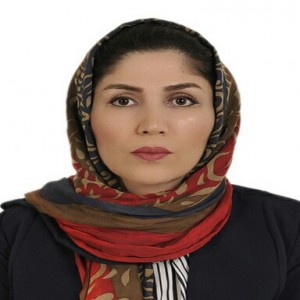البحوث العلمية
2018
Kurdish vowels - Bahdinan region acoustic research
2018-11
Humanities Journal of University of Zakho (القضية : 1) (الحجم : 5)
In general, every language is composed of some (vowel and consonant) sounds, the numbers of these sounds are different for each language. Surely vowel sounds play an important role in phonetic system of every language. Mostly each language has its special vowels which are different in number. In Kurdish language as other languages we have a number of vowels, but till now, there is argue about their exact number, Kurdish and foreign researchers have different opinions about it. This research under the title (Kurdish vowels - Bahdinan region acoustic research) has tried to analyze Kurdish vowels in a sound laboratory and under an acoustic environment, and this is for having more scientific results. The main hypothesis of this research is (we can use a laboratory environment by the help of F1 means: Formant 1, F2 means: Formant 2 and duration means: the duration which needs to express the vowel, to determine Kurdish vowels - Bahdinan region and differentiate them. At the end the researcher has proved that there are 8 vowels in Kurdish language - Bahdinan region.
2017
The Use of Prototype Theory in The Kurdish Languages
2017-06
Humanities Journal of University of Zakho (القضية : 2) (الحجم : 5)
Prototype theory is a theory in categorical aspect and is used as a tool for explanation of how language categories are formed. In cognitive semantics categorization of language tools is counted as basic prototyping, that is why prototype, are tools for categorization. This research according to the basics of prototype theory and in general frame of cognitive semantics searches the (fruit) prototype in Duhok's students. The goal of this research is to determine the effect of different ages, geographic regions, economic conditions and... Etc. on the selected prototype. The type of this research is in fields, its way of performance is fielding and the data collection is by questionnaires. The samples are collected from fourth stage students, Kurdish language department of university of Zakho, high school students in Balqos village and Shinwar School in Duhok. The research hypotheses are about the effect of different ages, geographic regions, economic conditions and... etc. on the selected prototype.
The Use of Prototype Theory in The Kurdish Languages
2017-06
Humanities Journal of University of Zakho (القضية : 2) (الحجم : 5)
Prototype theory is a theory in categorical aspect and is used as a tool for explanation of how language categories are formed. In cognitive semantics categorization of language tools is counted as basic prototyping, that is why prototype, are tools for categorization. This research according to the basics of prototype theory and in general frame of cognitive semantics searches the (fruit) prototype in Duhok's students. The goal of this research is to determine the effect of different ages, geographic regions, economic conditions and... Etc. on the selected prototype. The type of this research is in fields, its way of performance is fielding and the data collection is by questionnaires. The samples are collected from fourth stage students, Kurdish language department of university of Zakho, high school students in Balqos village and Shinwar School in Duhok. The research hypotheses are about the effect of different ages, geographic regions, economic conditions and... etc. on the selected prototype.
2015
The evaluation and description of the writing mistakes in four gradesof elementary schools
2015-03
Nûbihar Akademî (القضية : 2) (الحجم : 1)
Language is a means of acquaintance in societies (groups). This linguistic process begins from listening and in its written form it becomes a reading process. Reading and writing are two main properties of education system. Writing is a complex linguistic process and active as well, that’s why it is required to analyze student’s linguistic mistakes. This study under the title (Illustration and Linguistic Analysis of Basic Senior’s Writing Mistakes) attempts to analyze basic senior’s writing mistakes and it classifies these mistakes as well, I have applied descriptive approach in undertaking this study. I have used statistic methodology for identifying such mistakes. The study concluded that majority of basic senior’s writing mistakes are linguistic mistakes, a rate of 73% of such mistakes are committed on the morphological level of words, and 27% is the rate regarding the mistakes related to listening, which means: it comes on the top of the list of such mistakes. Regarding the mistakes related to the kind of teacher and dictation the rate is 24% which means it occupies the second place on the list.
الرجوع
